Rudy Giuliani ordered to pay $148 million to two Georgia election workers he defamed
WASHINGTON – A federal jury ordered Rudy Giuliani, Donald Trump’s campaign lawyer, to pay $148 million in damages to two 2020 Georgia election workers for falsely accusing them of election fraud.
The verdict for Ruby Freeman and her daughter, Shaye Moss, represents a huge reversal for the former federal prosecutor and onetime mayor of New York, who became known as "America's mayor" for his response to the Sept. 11, 2001, terror attacks.
“I know that my country had a president imposed on it by fraud,” Giuliani told reporters outside the courthouse. When asked for evidence of his unproven conspiracy theories, he replied: “These are not conspiracy theories. These are proven facts. I’m not allowed to present it.”
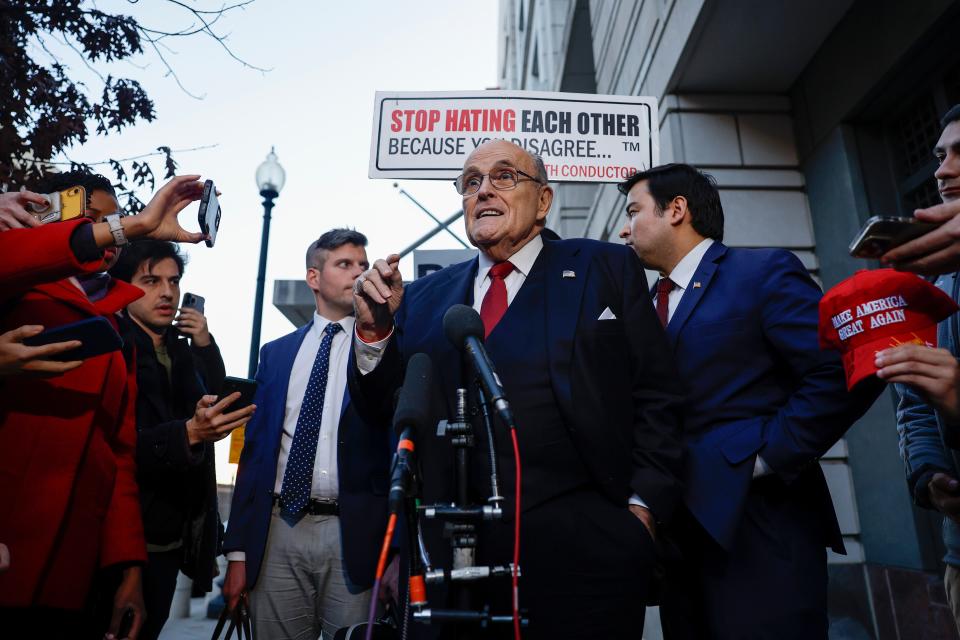
He vowed to appeal in a strident social media post.
Gasps in the courtroom
"The absurdity of the amount is indicative of the absurdity and unfairness of the entire proceeding," Giuliani said. "It bore no resemblance to a trial in a country with the rule of law. I wasn't able to offer any evidence in my defense. We'll have more to say and look forward to the appeal."
There was an audible gasp in the courtroom when the jury foreperson read aloud the damages. The jury awarded Freeman nearly $16.2 million and Moss nearly $17 million in defamation damages, $20 million each for the intentional infliction of emotional distress and a combined $75 million in punitive damages.
Freeman and Moss hugged their attorneys after the jury left the courtroom and didn’t look at Giuliani as he left with his lawyer.
The damages dwarf other financial challenges the 79-year-old former mayor faces. His former lawyer is suing him for $1.36 million in unpaid fees. And he has listed his apartment for sale for $6.5 million, which is only a fraction of what is owed.
U.S. District Judge Beryl Howell had previously ruled that Giuliani defamed the women by falsely accusing them of stuffing ballot boxes on election night while counting votes in Atlanta's State Farm Arena. An eight-person jury began deliberations Thursday to determine how much he owed the women in damages.
“The lies in this case became a sustained, deliberate, viral campaign, the purpose of which was to overturn an election and have these statements rocket around the world millions and millions of times,” Michael Gottlieb, a lawyer for the mother and daughter, said in closing arguments Thursday.
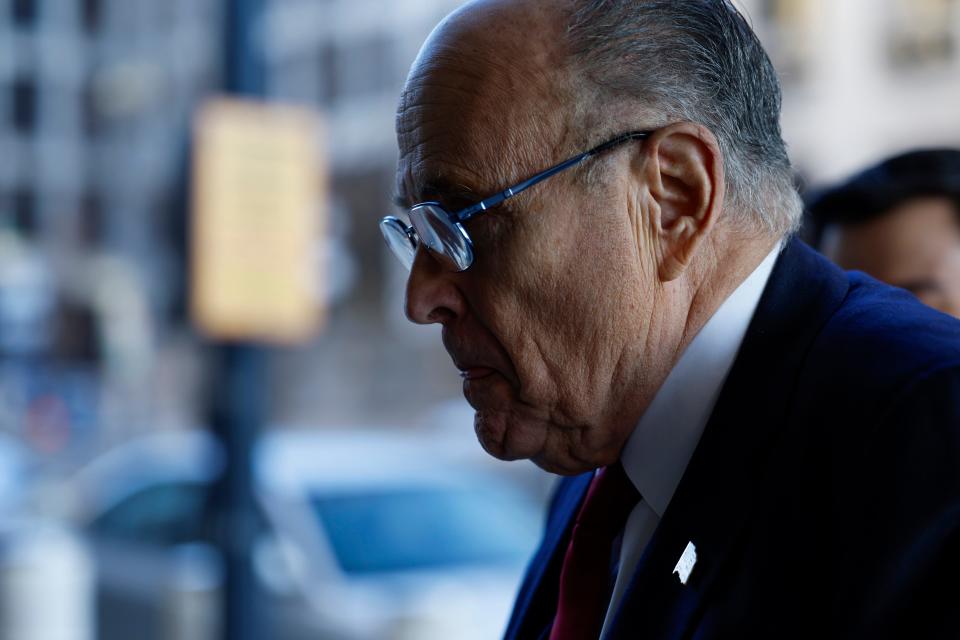
'Don't be angry,' Ruby Freeman says after verdict
While Giuliani clung to his election conspiracies, Freeman spoke of compassion. She told reporters outside the courthouse that money wouldn’t erase the damage Giuliani's lies had caused, and she asked people not to be angry with the threatening mobs who gathered at her home and harassed her family.
“For now, I want people to understand this: money will never solve all of my problems,” Freeman said. “I can never move back into the house that I called home. I will always have to be careful about where I go and who I choose to share my name with.”
Dig deeper: Judge scolds Rudy Giuliani in defamation case for repeating false claims against election workers
David beat Goliath?
Still, to some, the damages represent a win for the little guy.
Giuliani "thought they were patsies, that they couldn't fight back," Ken Frydman, who served as spokesman for Giuliani's 1993 mayoral campaign, told USA TODAY. "David beat Goliath today."
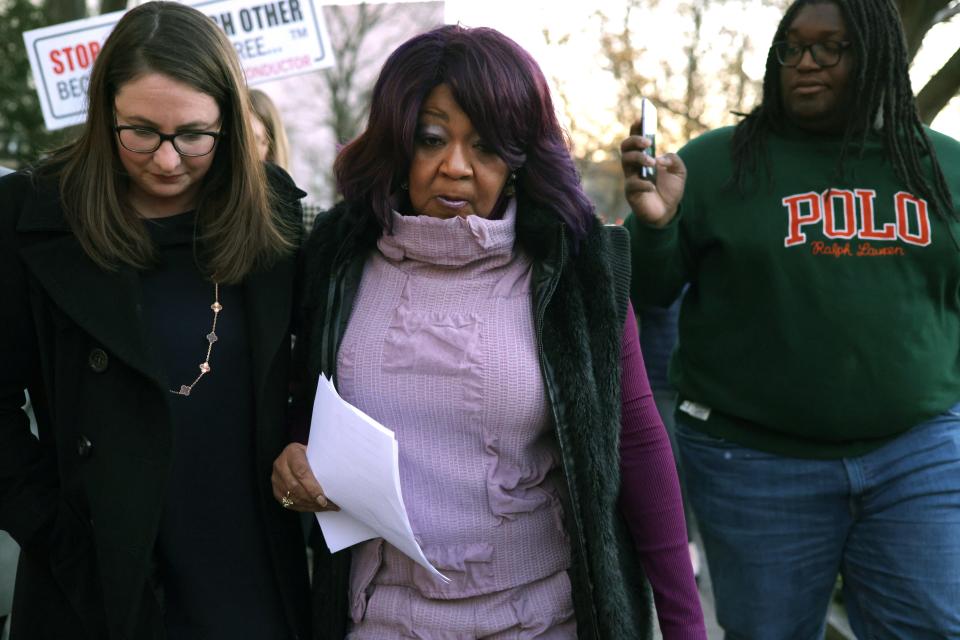
Giuliani's lawyer, Joseph Sibley, had said the case's damages could represent the “civil equivalent of the death penalty.” Sibley argued there is no evidence Giuliani encouraged the harassment.
Barb McQuade, a former U.S. attorney and now law professor at the University of Michigan, noted on social media that Giuliani would be unlikely to eliminate the judgment through bankruptcy.
Once he gets past this verdict, Giuliani faces other litigation for spreading Trump's baseless claims of election fraud, including:
Defending against criminal charges as a co-defendant in Trump's Georgia election racketeering case.
Defending civil lawsuits from voting machine companies Dominion Voting Systems and Smartmatic seeking billions in damages for defamation.
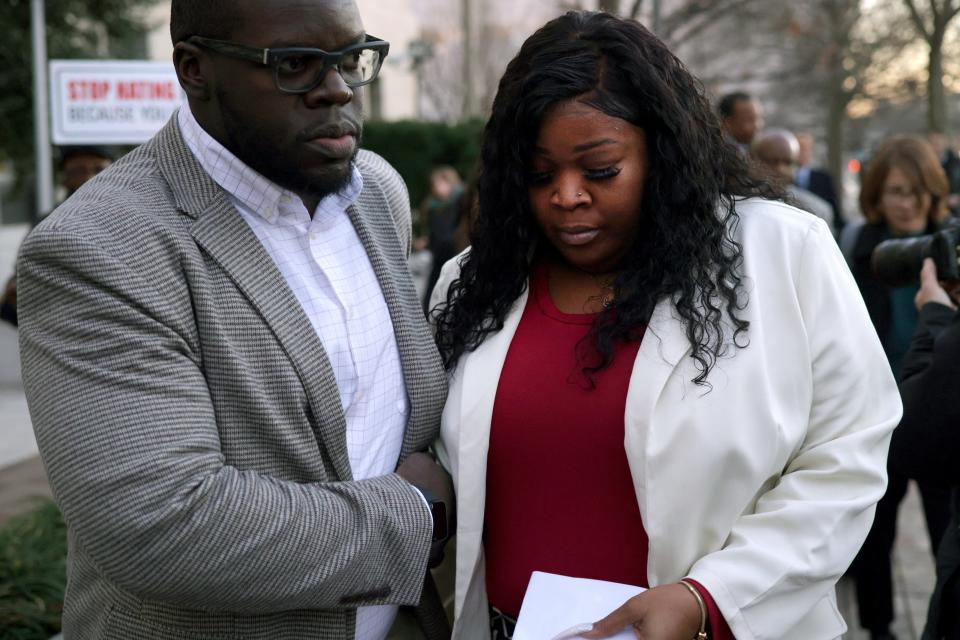
Giuliani basically surrendered the case in U.S. District Court and positioned himself to challenge the decision at the D.C. Circuit Court of Appeals. He didn’t contest the false statements he made about the women, but his lawyer argued Giuliani had a First Amendment right to his opinions about the election and shouldn’t be blamed for the racist messages and death threats the Freeman and Moss received.
Giuliani had said he was going to testify, but decided against it. He defiantly told reporters outside the courthouse Monday that "everything I said is true" and "I don't regret it." But Howell scolded his lawyer for defaming the women again. His defense rested Thursday without calling witnesses.
"It's impossible to reconcile the mayor he was with the person he's become," Frydman said. "If you're corruptible, you're going to be corrupted by Donald Trump."
How did Giuliani defame Freeman and Moss? By comparing them to drug dealers.
Giuliani's attacks on Freeman and Moss came as the Trump campaign worked in a half-dozen narrowly contested states to overturn Biden's victories. Georgia prosecutors have charged Giuliani in an election racketeering case with Trump and 17 others. Michigan and Nevada have charged Republicans who falsely posed as presidential electors, despite Biden winning those states.
Giuliani accused the election workers “under false pretenses” of excluding observers during the vote count, of introducing “suitcases” of illegal ballots, counting the same ballots multiple times and surreptitiously passing around flash drives, the lawsuit said.
At a meeting with Georgia lawmakers on Dec. 10, 2020, Giuliani said they had stolen votes in plain sight and that 12,000 to 14,000 ballots had been illegally counted. Biden won the state by 11,779 votes.
Giuliani told lawmakers Freeman and Moss were "quite obviously, surreptitiously, passing around USB ports as if they’re vials of heroin or cocaine."
But Freeman and Moss testified at a U.S. House hearing that they were passing ginger mints.
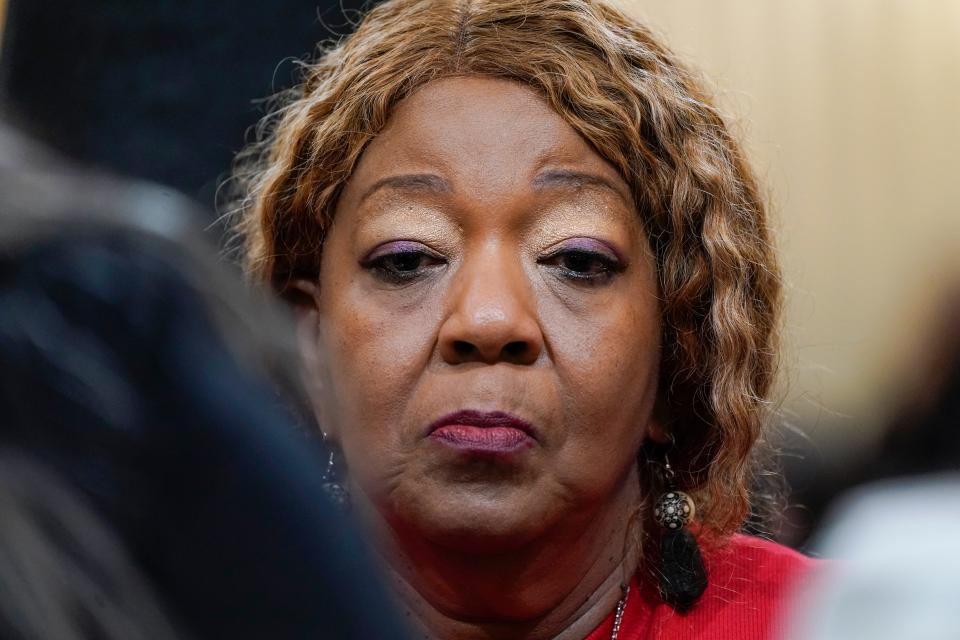
State investigators found Giuliani’s allegations were baseless. Officials found ballots weren’t counted multiple times, as he had charged, and the suitcases of ballots were routine storage containers. A hand recount of ballots confirmed Biden’s victory, the first in Georgia by a Democratic presidential candidate in nearly 30 years.
On Jan. 6, 2021 ? the day of the Capitol riot ? a crowd on foot and in vehicles surrounded Freeman's house, the lawsuit said. She was forced to flee her home for two months, at the recommendation of the FBI, and she shuttered her online business. She later sold the house where she had lived 20 years.
Appeal expected?
Giuliani appeared to anticipate appealing the case. In choosing not to contest the defamation allegations, Giuliani held onto the chance to argue that his comments about the women were constitutionally protected speech.
Judge Howell said she expects an appeal, based on Giuliani’s failure to share evidence in the case under a process called "discovery."
"The reservations in Giuliani’s stipulations make clear his goal to bypass the discovery process and a merits trial ? at which his defenses may be fully scrutinized and tested in our judicial system’s time-honored adversarial process ? and to delay such a fair reckoning by taking his chances on appeal, based on the abbreviated record he forced on plaintiffs," Howell wrote.
This article originally appeared on USA TODAY: Rudy Giuliani ordered to pay $148M to Ga. election workers he defamed
